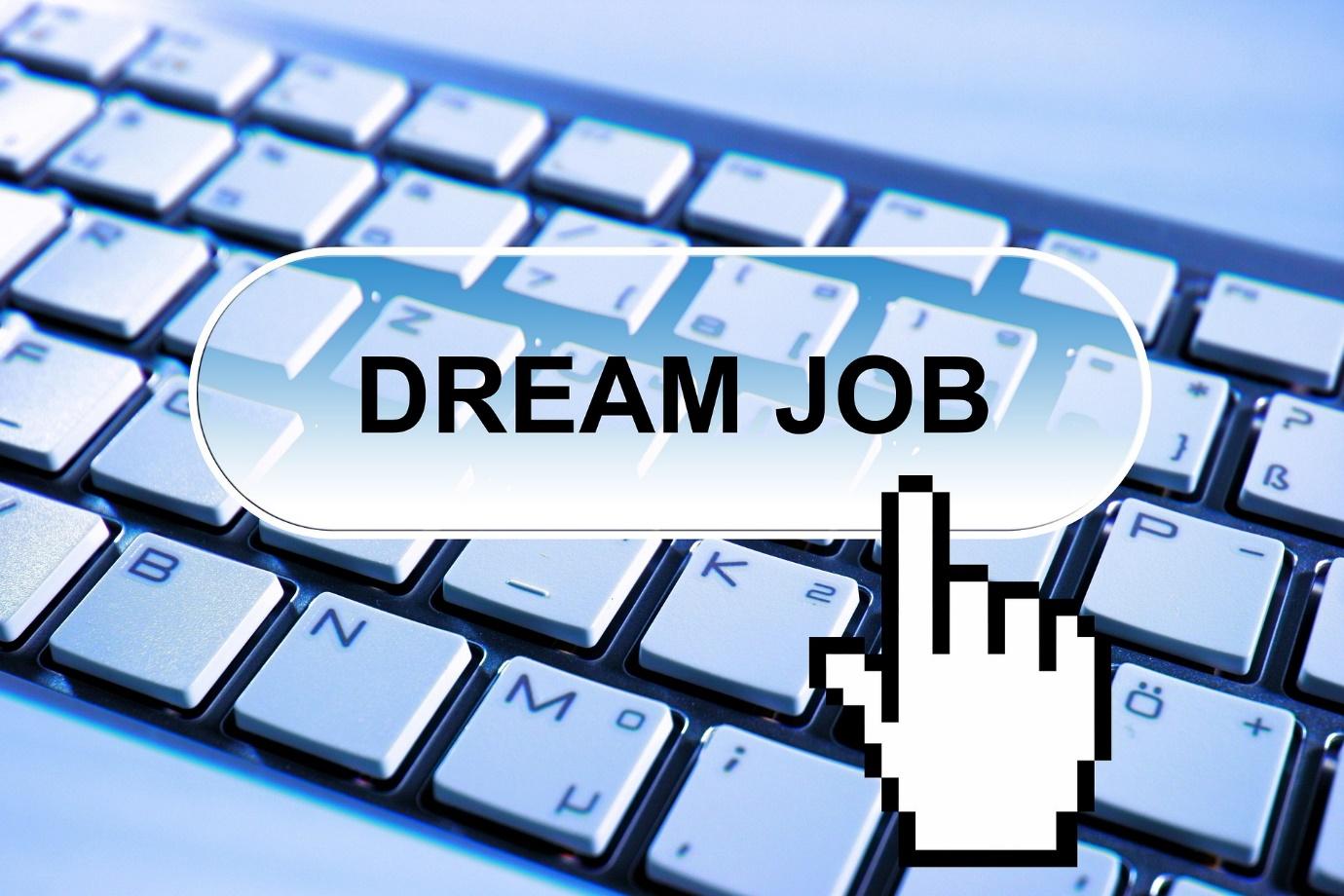The decision to part ways with a current job demands thoughtful consideration. Job transitions are not just about changing desks; they signify personal growth, aspirations, and pursuing a fulfilling career. In this exploration, we explore the common question: Why do individuals choose to leave their current jobs, and how can one articulate the reasons effectively in an interview setting?
Understanding the motives behind job changes is pivotal for personal development and successful communication during interviews. This journey involves reflecting on personal growth, assessing company culture, and navigating the delicate balance between career goals and current realities.
Let’s explore it in detail in the sections below!

Why One Leaves a Job?
Leaving a job isn’t just about walking away from tasks; it’s a personal journey influenced by various factors. One common motivator is the pursuit of personal growth. Individuals often crave new challenges, seeking opportunities to develop professionally and achieve a better work-life balance. This desire for growth propels them to explore new horizons.
Company culture and values also play a crucial role. If there’s a misalignment with the principles a company upholds or a cultural mismatch, it can impact job satisfaction. Being in sync with the ethos of the workplace is vital for a harmonious and fulfilling professional experience.
Advancement and career growth serve as powerful catalysts for job transitions. When current roles feel stagnant and growth opportunities seem limited, the itch for a more challenging position becomes irresistible. This drive for progress pushes individuals to seek environments that foster their professional development.
Work environment and relationships can be decisive factors, too. A toxic workplace or strained relationships with colleagues and superiors can take a toll on mental health. Recognizing the impact of these dynamics is crucial when considering a move.
Compensation and benefits, or the lack thereof, often influence job changes. Inadequate pay and limited perks can be strong motivators for seeking new opportunities. Fair and competitive packages are not just about the paycheck; they contribute to overall job satisfaction.
Possible Reasons for Leaving a Job
Job transitions can be driven by various factors, each carrying its own weight in the decision-making process. Let’s explore eight common reasons why individuals may contemplate leaving their current jobs:
. Desire for New Challenges
The craving for fresh challenges is a potent motivator. When individuals feel that their current role no longer provides the stimulating experiences they seek, the allure of new horizons becomes irresistible. Exploring uncharted territories allows for personal and professional growth.
. Lack of Career Advancement
Pause in one’s current role can breed dissatisfaction. If there’s a shortage of opportunities for career advancement or the trajectory seems unclear, the motivation to seek a more challenging position elsewhere intensifies. Everyone wants to feel their career progressing.
. Toxic Work Environment
The impact of the work environment on mental health is profound. A toxic workplace, characterized by negativity, hostility, or unhealthy competition, can drain individuals emotionally and diminish job satisfaction. Escaping such environments becomes a pursuit of well-being.
. Misalignment with Company Values
When personal values clash with the company’s, it can lead to discomfort and dissatisfaction. If an individual feels their principles do not align with the organization’s, it becomes a valid reason to explore opportunities that resonate better with their beliefs.
. Inadequate Compensation
Fair and competitive compensation is a cornerstone of job satisfaction. If an individual perceives their pay as inadequate or if the benefits and perks offered are limited, the allure of better financial rewards elsewhere can be a compelling reason to move on.

. Loss of Interest in Current Role
Over time, interests may evolve, and what once sparked enthusiasm might lose its appeal. If an individual finds themselves disengaged or uninterested in their current responsibilities, the desire to find a role that reignites their passion becomes a driving force.
. Strained Relationships
Interpersonal dynamics at the workplace can significantly impact job satisfaction. Strained relationships with colleagues or superiors may create a stressful environment. Seeking a new professional space where relationships are healthier becomes a natural consideration.
. Location and Commute Challenges
Practical considerations, such as the location of the workplace and the daily commute, can be influential factors. Whether it’s a desire to relocate for personal reasons or the strain of a lengthy commute, individuals may seek opportunities that offer a better balance between work and personal life.
Each of these reasons represents a piece of the intricate puzzle: the decision to leave a job. Recognizing and understanding these factors is essential for individuals to navigate their career paths successfully and find workplaces that align with their values and aspirations.
How to Answer the Interviewer When Leaving a Job
Addressing why you’re leaving your current job during an interview requires finesse and honesty. Here’s a guide on how to articulate your reasons effectively:
. Be Honest and Transparent
Start with honesty. Acknowledge the desire for growth, change, or improvement. This sets the tone for open communication.
. Focus on Personal Growth
Emphasize your need for personal and professional development. Explain how you seek new challenges to enhance your skills and contribute more effectively.
. Align with Company Values
If your current job doesn’t align with your values, express this diplomatically. Highlight the importance of aligning with the company’s mission and values for a more fulfilling work experience.
. Emphasize Career Growth
Talk about your aspirations for career growth. If your current role lacks opportunities for advancement, mention your eagerness to take on more responsibilities and challenges.
. Discuss the Work Environment Positively
If leaving due to a toxic work environment, frame it positively. Mention your commitment to a healthy work environment and belief that a positive workplace fosters productivity.
. Highlight Learning Experiences
When addressing strained relationships, focus on the learning experiences. Discuss how you’ve navigated and grown from challenges, emphasizing your adaptability.
. Connect with Long-Term Goals
Align your reasons with your long-term career goals. Explain how the move you’re considering is a strategic step toward achieving those goals.
. Balancing Personal and Professional Life
If location or commute is a factor, discuss the need for a better work-life balance. Frame it as a decision to prioritize your overall well-being and ensure you can perform at your best.
. Research and Provide Examples
Before the interview, research the company and its values. Tailor your responses to show how your reasons align with the company’s culture. Provide specific examples to illustrate your points.
. Avoid Negative Language
Choose your words carefully to avoid sounding negative. Focus on your aspirations and the positive aspects of the change you seek.
. Express Gratitude
Express gratitude for the opportunities your current job has provided. This showcases professionalism and gratitude, leaving a positive impression.
. Frame Challenges as Opportunities
When discussing challenges, frame them as opportunities for growth. Talk about how overcoming these challenges has shaped your professional journey.
. Showcase Adaptability
Demonstrate your adaptability by emphasizing how you’ve navigated changes in the past and how you’re prepared for new challenges.
. Be Concise and Specific
Keep your responses concise and specific. Avoid unnecessary details and focus on the key points, effectively conveying your reasons.
. Ask Questions About the New Role
After explaining your reasons for leaving, express enthusiasm about the potential new role. Ask questions about the company culture, growth opportunities, and how your skills align with their needs.
Remember, honesty and positivity are key. By framing your reasons constructively and showing how the change aligns with your goals, you can navigate this question with confidence and professionalism.
How to Showcase Cultural Fit During an Interview
Demonstrating cultural fit is crucial during an interview, as it ensures that you align with the values and ethos of the company. Here’s how you can effectively showcase your cultural fit:
. Research Company Values
Before the interview, thoroughly research the company’s mission, values, and culture. This knowledge forms the foundation for aligning your responses with the company’s values.
. Highlight Shared Values
During the interview, emphasize the values you share with the company. Connect your personal and professional values with those articulated by the organization.
. Express Enthusiasm
Showcase genuine enthusiasm for the company’s mission. Express how the company’s goals resonate with your aspirations and how you’re excited about contributing to their success.
. Discuss Past Experiences
Provide examples from your past experiences that align with the company’s culture. Highlight instances where you’ve embodied the values they prioritize.
. Demonstrate Adaptability
Cultural fit isn’t just about aligning with existing norms; it’s also about adaptability. Showcase instances where you’ve successfully adapted to different work cultures.
. Showcase Collaboration
Emphasize your ability to work collaboratively. Discuss projects or experiences where teamwork was essential and how you actively contributed to collective success.
. Use Language That Resonates
Pay attention to the language used by the company in its communications. Incorporate similar language in your responses to demonstrate that you understand and can seamlessly integrate with their communication style.
. Be Observant During the Interview
Observe the dynamics during the interview. Adapt your responses based on your cues about the company’s culture during the conversation.
. Ask Culture-Related Questions
Demonstrate your interest in the company’s culture by asking questions about it. Inquire about team dynamics, collaboration, and how the company fosters a positive work environment.
. Share Your Work Style
Discuss your work style and how it aligns with the collaborative or independent nature of the company’s culture. This gives the interviewer insights into how you would fit into their team.
. Express Openness to Feedback
Highlight your openness to feedback and continuous improvement. This aligns with cultures that value a growth mindset and ongoing development.
. Connect with the Company’s Success Stories
If the company has success stories or notable achievements, express your admiration for them. Demonstrate how you see yourself contributing to and participating in such successes.

. Share Personal Values Judiciously
While discussing personal values, do so judiciously. Focus on universally appreciated values that align with a professional work environment.
. Follow-up with a Thank You
After the interview, send a thank-you email expressing your appreciation for the opportunity and reiterating your excitement about the prospect of contributing to the company’s culture.
By consciously weaving these elements into your responses and interactions, you can effectively showcase your cultural fit, leaving a positive impression on the interviewer.
Conclusion
Understanding and articulating reasons for leaving, whether driven by a desire for new challenges, career growth, or cultural misalignment, is pivotal. Individuals can confidently navigate these conversations by framing experiences positively, showcasing adaptability, and aligning with company values.
If you are looking for new and exciting career opportunities, consider using iApply for your job search. iApply provides a user-friendly platform to browse diverse job listings, connect with potential employers, and take the next step in your professional journey.









